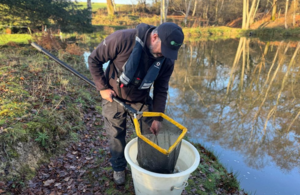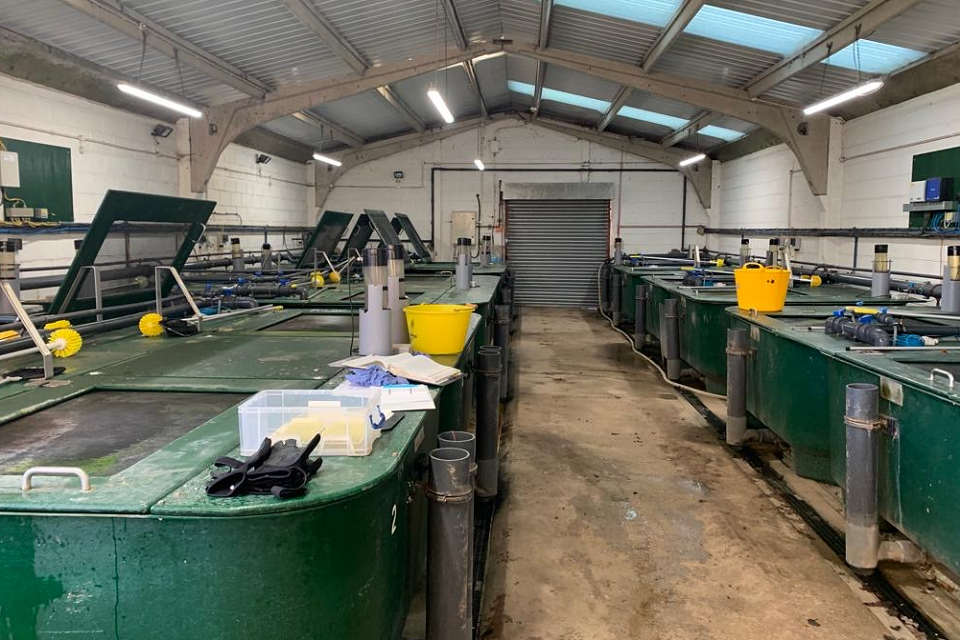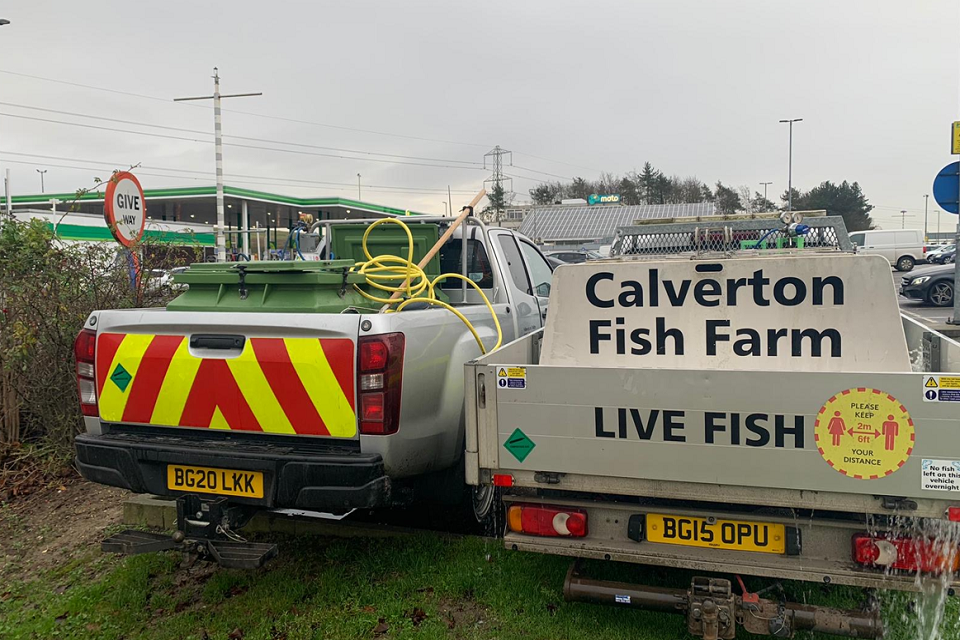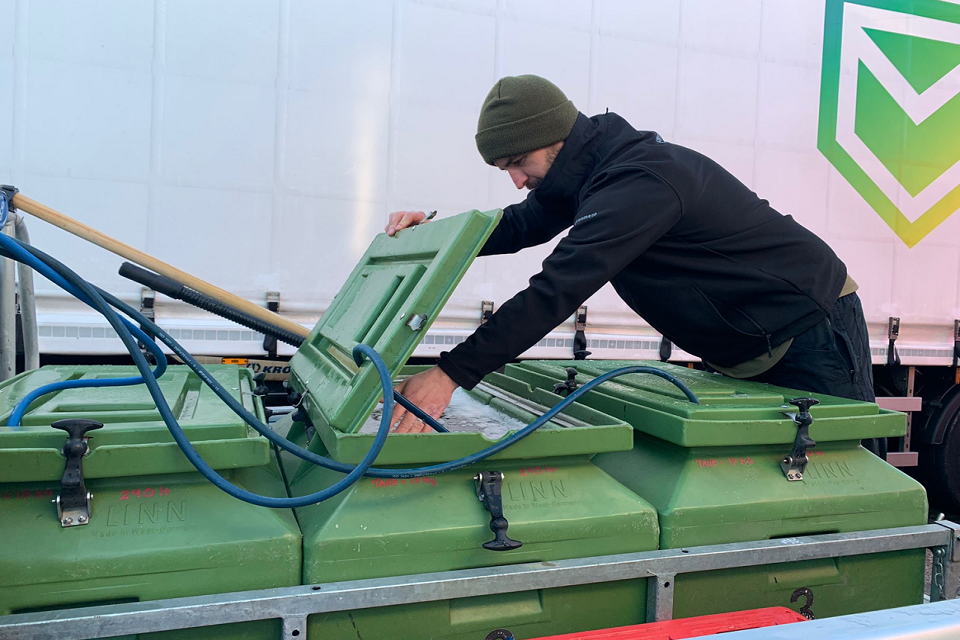“FISHmas” stocking is a cracker!
Over 48,000 fish receive new homes in the South East thanks to the Environment Agency’s annual restocking programme

Environment Agency staff release fish into their new home
The festive season got off with a cracker of a “FISHmas” stocking across the South East this Christmas. The Environment Agency’s annual fish restocking is a welcome stocking filler for local anglers across the country. Rivers, still waters, and local clubs have been stocked with batches of juvenile fish.
As the weather turns colder and many anglers start thinking about hanging their rods up for the winter, staff at the farm enter their most exciting period as they look to release fish into the wild. And this year’s carefully coordinated releases kicked off in the South East with an array of species being introduced to their new homes, including thousands of bream, roach, barbel, chub, dace, roach, tench, rudd and crucian.
These fish are all bred and raised at the Environment Agency’s Calverton Fish Farm near Nottingham, which has been the Environment Agency’s principal supply of coarse fish for 32 years. The fish farm is a crucial part of the Environment Agency’s toolkit for improving fisheries around the country. Specialist fisheries experts spend the year breeding and growing quality, pure-bred, disease-free fish which are used to stock our rivers in the run up to Christmas.

Tanks at Calverton Fish Farm
Joe Kitanosono, Fisheries Officer at the Environment Agency said:
“Releasing over 48,000 fish across our South East rivers and still waters provides an amazing opportunity to help boost our local fish numbers. Through our breeding program we are enhancing fishing by boosting stocks and providing more opportunities for anglers.
“It has long been proven that outdoor activities such as angling have a positive impact on mental health, so it is hoped that our rivers and local clubs will attract new and old anglers to give the sport a go.
“We work closely with our partners to protect and enhance our fish populations, by responding to pollution incidents, improving habitats, water quality and removing barriers to fish migration. Without rod licences this vital work would not be possible.”
Each fish released into the wild has undertaken a very complex 18-month journey. Sperm and eggs are removed by hand and treated to improve fertilisation. The eggs are then incubated in fresh temperature-controlled water for between 3 and 30 days, depending on the species. Once the eggs hatch the tiny larvae start feeding on miniature brine shrimp and are stocked in onsite ponds. Once the fish reach 18 months, they are ready for the biggest voyage of their life.
The next step is transferring the juvenile fish into large, oxygenated tanks and loading them onto large specially equipped trucks so they can begin travelling across our networks of motorways. Once at their release sites, fisheries officers carefully remove the fish from the tanks and they find their new-found freedom in our rivers. Restocking occurs in winter because water temperatures are low and this minimises any stress on the fish, giving them the best possible survival rates. It also enables them to acclimatise to their new surroundings, ahead of their spawning season in the spring.

Fish loaded into Environment Agency mobile tanks and on route to new homes
Environment Agency fisheries officers use data from national fish surveys to identify where there are problems with poor breeding, issues with survival rates, or where numbers have been impacted following a pollution incident. These surveys carried out help the Environment Agency ensure that fish are released into the right locations and where need is greatest as well as supporting angling clubs to boost local fishing spots.
Fish play a critical role in sustaining a river’s finely-balanced eco-system, so the wider natural environment will also get a festive boost. Win win for all!
A further 25,000 fish will be delivered across the South East in the New Year. High rainfall has caused some delays as many rivers around the country have been suffering from high flows. Releasing fish into these conditions is counterproductive and would be a waste of the 18 months hard work put in to ensure they are at their best prior to stocking. So further good news is in store for our rivers in the New Year!

Welfare check on the fish prior to departure from Calverton Fish Farm
All rod licence income is used to fund work to protect and improve fish stocks and fisheries. You can buy your rod licence online.
Contact us
Media enquiries: 0800 141 2743
E-mail: [email protected]